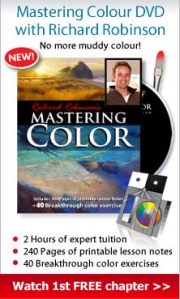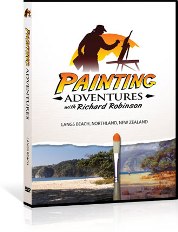Tips for Beating Artist’s Block
It happens to artists all the time and can really be a demoralising experience for an artist to feel like all the inspiration has vanished. You basically go through a phase where you’re confronted with a creative block. However, going through such a phase doesn’t mean that you’re going to lose your artistic talents and it can be surmounted. The following are some oil painting tips that can help you beat artist’s block. • Firstly, the fear that you’re not able to do it that makes you feel as if all your inspiration has gone. In order to get overcome this fear, you need to approach your painting like you would do for your job. • Set a goal of a certain number of paintings. This is not easy but you have to force yourself. Copy if you have to; use kitchen utensils as models if necessary but just getting into the paint itself will begin to give you inspiration, regardless of whether the subject matter interests you. You’ll always be able to pick up something new. • Change between different media. If you’ve been working with acrylics, change to oil. If you’ve been working with oil, try printmaking. • Look out for new artists on the web. Google’s image search tool is a good place to start. Visit galleries. Try to search for an artist whose work appeals to you, something that you feel you can do. Find and image, secure it and then copy it to establish what the artist used and how. Then ponder the idea of recombining the concepts. • Try to play the ‘what if’ game. What if I tried to paint this subject on rubber? What if I created a still life of bricks? Can I use a new material, new style or subject matter and how can I accomplish that? Try some wild imaginations and considerations. • Keep in mind that everyone experiences fallow periods. You shouldn’t really consider these moments fallow but rather the time when the subconscious takes a break to ready itself to embark on a different direction. • There are a lot of books that have been written on the subject of creative thinking. Check a few out and you’ll get a jolt. • Go on a trip to someplace you’ve never considered going, no matter if it’s a local town you’ve never been to. Remember to carry a sketch book with you to each place you visit. A digital camera could also do. To change your perspective, imagine yourself a giant or a Lilliput. • Have your records of paintings and writings for each month stored in a journal. Get something from the journal and paint it, and then review it after some time, say six month or a year. • Put together a scrapbook of family portraits, not only faces but each of the people in your family doing something they usually do. Write about the person, note down the time, and your impressions. Keep it safely in your journal for your grandchildren. • And then finally, you can join an art class where you’ll be forced to produce some work in a structured setting and learn different styles of oil painting. | |
|


Master the Colours DVD...

|
Although every attempt has been made to make information as accurate as possible, we are not responsible for any errors that may appear.
© Copyright 2015, OilPaintingTechniquesLessons.com. All Rights Reserved.




